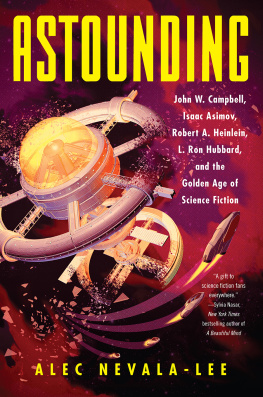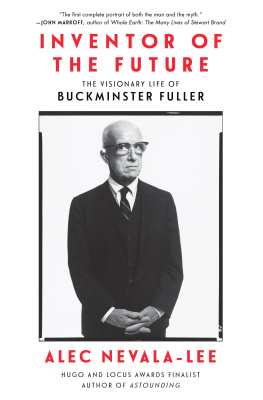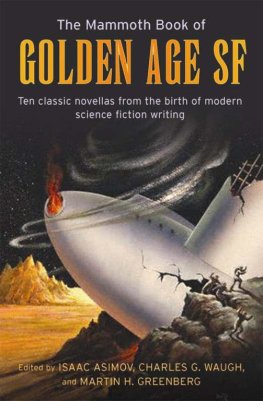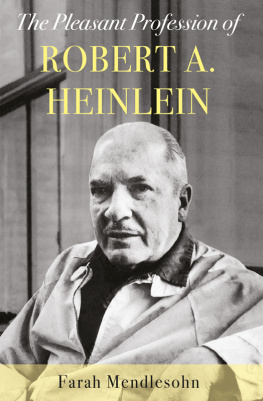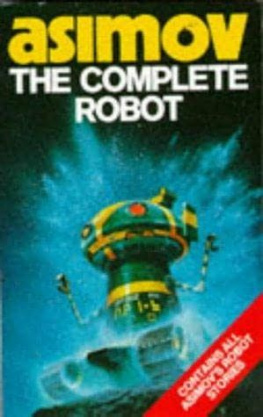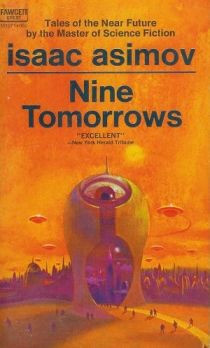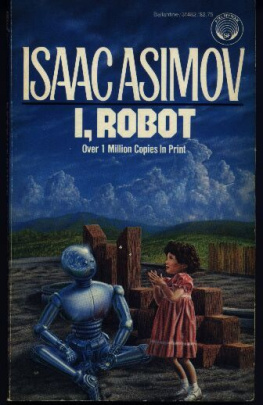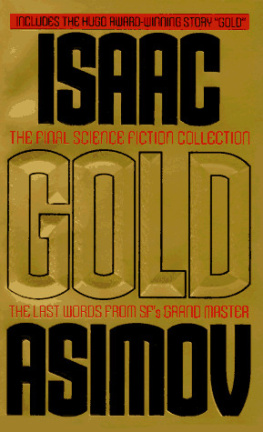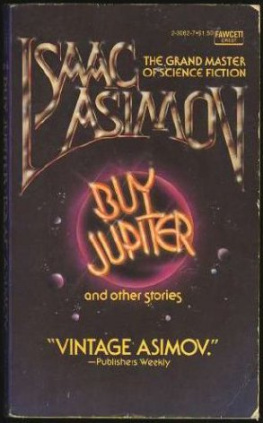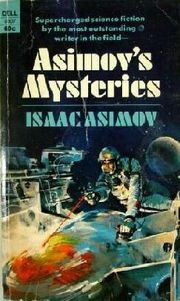Alec Nevala-Lee - Astounding: John W. Campbell, Isaac Asimov, Robert A. Heinlein, L. Ron Hubbard, and the Golden Age of Science Fiction
Here you can read online Alec Nevala-Lee - Astounding: John W. Campbell, Isaac Asimov, Robert A. Heinlein, L. Ron Hubbard, and the Golden Age of Science Fiction full text of the book (entire story) in english for free. Download pdf and epub, get meaning, cover and reviews about this ebook. year: 2018, publisher: Dey Street Books, genre: Non-fiction. Description of the work, (preface) as well as reviews are available. Best literature library LitArk.com created for fans of good reading and offers a wide selection of genres:
Romance novel
Science fiction
Adventure
Detective
Science
History
Home and family
Prose
Art
Politics
Computer
Non-fiction
Religion
Business
Children
Humor
Choose a favorite category and find really read worthwhile books. Enjoy immersion in the world of imagination, feel the emotions of the characters or learn something new for yourself, make an fascinating discovery.
- Book:Astounding: John W. Campbell, Isaac Asimov, Robert A. Heinlein, L. Ron Hubbard, and the Golden Age of Science Fiction
- Author:
- Publisher:Dey Street Books
- Genre:
- Year:2018
- Rating:5 / 5
- Favourites:Add to favourites
- Your mark:
Astounding: John W. Campbell, Isaac Asimov, Robert A. Heinlein, L. Ron Hubbard, and the Golden Age of Science Fiction: summary, description and annotation
We offer to read an annotation, description, summary or preface (depends on what the author of the book "Astounding: John W. Campbell, Isaac Asimov, Robert A. Heinlein, L. Ron Hubbard, and the Golden Age of Science Fiction" wrote himself). If you haven't found the necessary information about the book — write in the comments, we will try to find it.
Alec Nevala-Lee has brilliantly recreated the era. . . . A remarkable work of literary history. Robert Silverberg
Science fiction has been awaiting this history/biography for more than half a century. . . . Here it is. This is the most important historical and critical work my field has ever seen. Alec Nevala-Lees superb scholarship and insight have made the seemingly impossible a radiant and irreplaceable gift.Barry N. Malzberg, author ofBeyond Apollo
Astoundingis the landmark account of the extraordinary partnership between four controversial writersJohn W. Campbell, Isaac Asimov, Robert A. Heinlein, and L. Ron Hubbardwho set off a revolution in science fiction and forever changed our world.
This remarkable cultural narrative centers on the figure of John W. Campbell, Jr., whom Asimov called the most powerful force in science fiction ever. Campbell, who has never been the subject of a biography until now, was both a visionary authorhe wrote the story that was later filmed asThe Thingand the editor of the groundbreaking magazine best known asAstounding Science Fiction, in which he discovered countless legendary writers and published classic works ranging from theI, Robotseries toDune. Over a period of more than thirty years, from the rise of the pulps to the debut ofStar Trek, he dominated the genre, and his three closest collaborators reached unimaginable heights. Asimov became the most prolific author in American history; Heinlein emerged as the leading science fiction writer of his generation with the novelsStarship TroopersandStranger in a Strange Land; and Hubbard achieved lasting fameand infamyas the founder of the Church of Scientology.
Drawing on unexplored archives, thousands of unpublished letters, and dozens of interviews, Alec Nevala-Lee offers a riveting portrait of this circle of authors, their work, and their tumultuous private lives. With unprecedented scope, drama, and detail,Astoundingdescribes how fan culture was born in the depths of the Great Depression; follows these four friends and rivals through World War II and the dawn of the atomic era; and honors such exceptional women as Doa Campbell and Leslyn Heinlein, whose pivotal roles in the history of the genre have gone largely unacknowledged. For the first time, it reveals the startling extent of Campbells influence on the ideas that evolved into Scientology, which prompted Asimov to observe: I knew Campbell and I knew Hubbard, and no movement can have two Messiahs. It looks unsparingly at the tragic final act that estranged the others from Campbell, bringing the golden age of science fiction to a close, and it illuminates how their complicated legacy continues to shape the imaginations of millions and our vision of the future itself.
Alec Nevala-Lee: author's other books
Who wrote Astounding: John W. Campbell, Isaac Asimov, Robert A. Heinlein, L. Ron Hubbard, and the Golden Age of Science Fiction? Find out the surname, the name of the author of the book and a list of all author's works by series.

